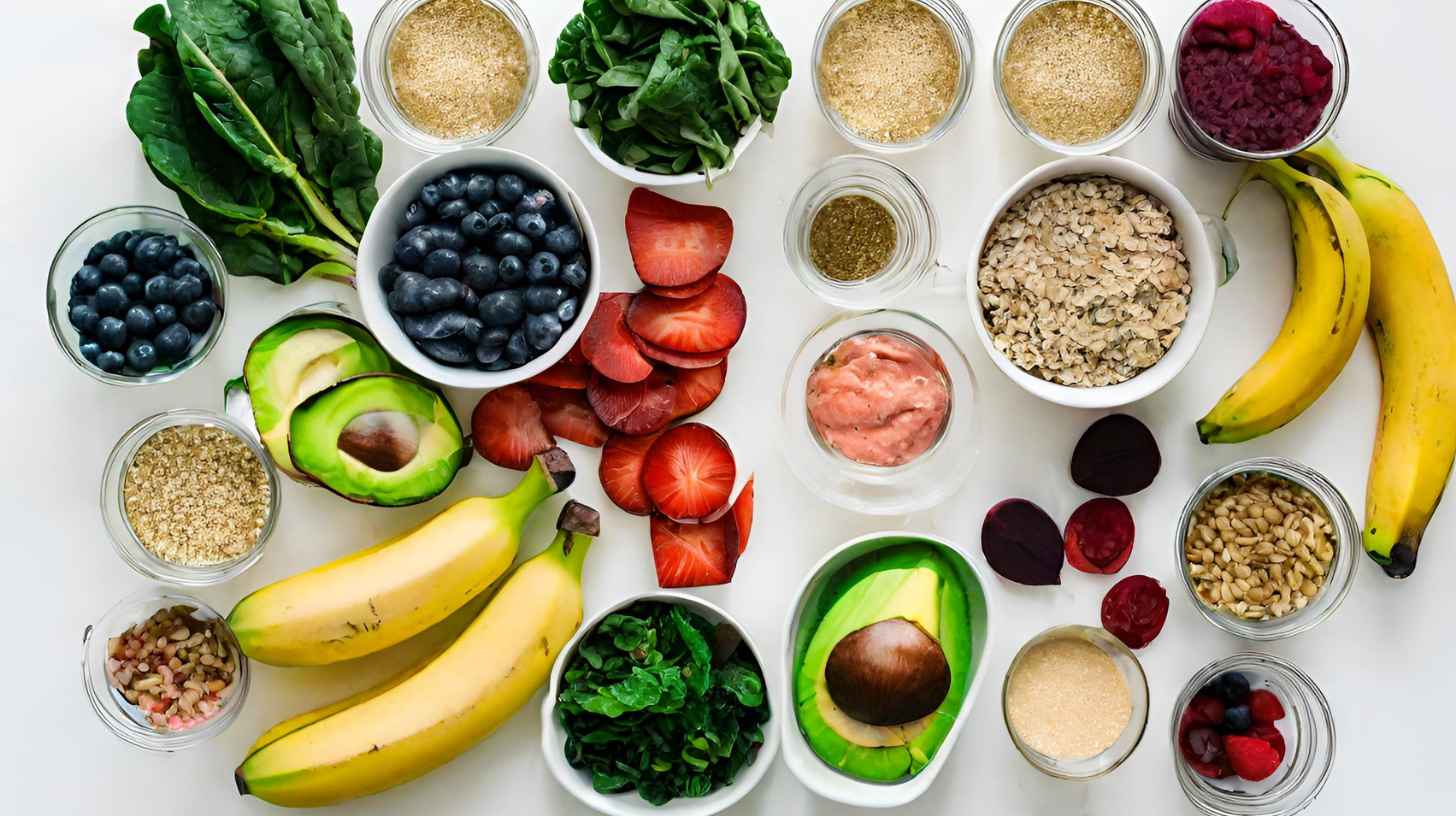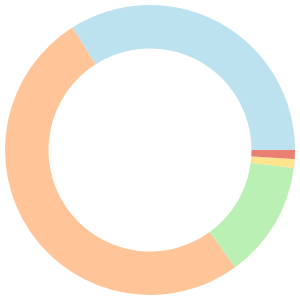14-day meal plan for high blood pressure
Take charge of your high blood pressure with our 14-day meal plan. Crafted with a focus on heart-healthy ingredients, this plan aims to support healthy blood pressure levels. Enjoy a variety of flavorful recipes designed to nourish your body while promoting cardiovascular well-being.




Meal plan grocery list
- Oats
- Bananas
- Spinach
- Kale
- Beets
- Blueberries
- Strawberries
- Garlic
- Tomatoes
- Celery
- Quinoa
- Lentils
- Avocado
- Sweet potatoes
- Salmon
- Low-fat Greek yogurt
- Almonds
- Walnuts
- Olive oil
- Black beans
- Kidney beans
- Brown rice
- Flaxseeds

Article Reviewed
Meal plan overview
Manage high blood pressure with our 14-day meal plan. Packed with heart-healthy and plant-based recipes, this plan supports blood pressure regulation while offering delicious and satisfying meals. Explore a variety of options that contribute to better cardiovascular health on a nutrient-conscious and flavorful journey.

Foods to eat
- High-Potassium Foods: Choose bananas, oranges, tomatoes, and potatoes for blood pressure regulation.
- Leafy Greens: Incorporate spinach, kale, and Swiss chard for magnesium and potassium.
- Lean Proteins: Opt for skinless poultry, fish, and plant-based protein sources like beans and lentils.
- Whole Grains: Select brown rice, quinoa, and whole wheat for fiber and heart health.
- Healthy Fats: Include avocados, nuts, seeds, and olive oil for monounsaturated fats.
- Low-Fat Dairy or Alternatives: Choose low-fat or fat-free dairy or plant-based alternatives for calcium.
- Berries: Enjoy berries like strawberries and blueberries for antioxidants and flavor.
- Garlic: Use fresh garlic in cooking for its potential blood pressure-lowering properties.
- Hydration: Drink plenty of water to stay hydrated and support overall health.
- Moderate Sodium: Use herbs and spices for flavoring instead of excessive salt.
✅ Tip
Season your dishes with potassium-rich herbs like dill and parsley to help balance sodium levels and manage blood pressure.
Foods not to eat
- High-Sodium Foods: Limit processed foods, canned soups, and salty snacks to reduce sodium intake.
- Added Sugars: Minimize the consumption of sugary drinks, desserts, and processed sweets.
- Trans Fats: Avoid partially hydrogenated oils and foods high in trans fats.
- Processed Meats: Reduce intake of processed meats like bacon, sausages, and deli meats.
- Excessive Caffeine: Limit caffeine intake, as it can temporarily raise blood pressure.
- Individual Preferences: Consider individual preferences and dietary restrictions for sustainable choices.
- Regular Blood Pressure Checks: Monitor blood pressure regularly and consult with a healthcare provider.
- Regular Physical Activity: Combine a heart-healthy diet with regular exercise for optimal blood pressure management.
- Consult a Healthcare Professional: For personalized advice on managing high blood pressure, consult with a healthcare provider.
Main benefits
The 14-day meal plan for high blood pressure emphasizes low-sodium and heart-healthy foods. It includes nutrient-rich fruits, vegetables, whole grains, and lean proteins to help manage blood pressure levels.

Fat
Carbs
Protein
Fiber
Other
How to budget on this meal plan
Focus on oats, bananas, and spinach as main staples. Kale and beets offer variety and can be more economical in bulk. Berries, garlic, and tomatoes are often cheaper when bought in season. Quinoa, lentils, and avocado can be more cost-effective when purchased in bulk.
Download the grocery list FREE
- Add & remove items
- Sort items by store aisles
- Share the list with others

Extra tips ✨
Any healthy snack ideas?
Enjoy these low-sodium snacks that are great for managing high blood pressure:
- Unsalted nuts and seeds
- Yogurt with fresh fruit
- Oatmeal with berries
- Whole grain toast with banana
- Unsalted rice cakes with avocado
- Homemade vegetable soup
- Sliced cucumber and bell peppers
What should I drink on this meal plan?
For high blood pressure, beverages that support cardiovascular health are ideal. Water, as always, is a must for overall health. Hibiscus tea has been shown to lower blood pressure. Skim milk provides calcium without excess fat. Beet juice may help lower blood pressure. Green tea, in moderation, offers heart-healthy antioxidants.
How to get even more nutrients?
Managing high blood pressure involves eating a diet that supports healthy blood vessel function and reduces sodium intake. Foods rich in potassium, magnesium, and fiber can help lower blood pressure. These include fruits, vegetables, whole grains, and nuts. Proteins should be lean, like fish or chicken, and the intake of healthy fats, especially omega-3 fatty acids from fish and flax seeds, should be encouraged to improve cardiovascular health.
Meal plan suggestions
14-Day Meal Plan for High Blood Pressure
This meal plan focuses on incorporating foods rich in nutrients known to help manage high blood pressure. It includes a variety of fruits, vegetables, whole grains, lean proteins, and healthy fats.
Day 1
- Breakfast: Oatmeal topped with sliced bananas and a sprinkle of flaxseeds
- Lunch: Spinach and lentil salad with cherry tomatoes, cucumbers, and balsamic vinaigrette
- Dinner: Baked salmon with roasted sweet potatoes and steamed broccoli
Calories: 2000 Fat: 70g Carbs: 230g Protein: 100g
Day 2
- Breakfast: Greek yogurt with mixed berries and a drizzle of honey
- Lunch: Quinoa and black bean bowl with avocado, tomatoes, and lime-cilantro dressing
- Dinner: Stir-fried tofu with mixed vegetables served over brown rice
Calories: 1950 Fat: 68g Carbs: 225g Protein: 98g
Day 3
- Breakfast: Whole grain toast with mashed avocado and sliced tomatoes
- Lunch: Lentil soup with celery, carrots, and garlic
- Dinner: Grilled chicken breast with steamed spinach and quinoa
Calories: 2050 Fat: 72g Carbs: 235g Protein: 102g
Day 4
- Breakfast: Smoothie made with kale, berries, banana, and flaxseeds
- Lunch: Mixed greens salad with grilled salmon, walnuts, and olive oil-lemon dressing
- Dinner: Vegetable stir-fry with tofu and brown rice
Calories: 2000 Fat: 70g Carbs: 230g Protein: 100g
Day 5
- Breakfast: Overnight oats with almond milk, chia seeds, and sliced strawberries
- Lunch: Chickpea and tomato salad with cucumber, red onion, and balsamic vinaigrette
- Dinner: Baked sweet potatoes topped with black beans, salsa, and avocado
Calories: 1980 Fat: 69g Carbs: 228g Protein: 99g
Day 6
- Breakfast: Whole grain pancakes topped with mixed berries and a drizzle of maple syrup
- Lunch: Quinoa and vegetable stir-fry with tofu
- Dinner: Grilled shrimp skewers with roasted vegetables and quinoa
Calories: 2020 Fat: 71g Carbs: 232g Protein: 101g
Day 7
- Breakfast: Spinach and tomato omelette with whole grain toast
- Lunch: Lentil and kale salad with cherry tomatoes, cucumbers, and lemon-tahini dressing
- Dinner: Stuffed bell peppers with quinoa, black beans, and salsa
Calories: 2000 Fat: 70g Carbs: 230g Protein: 100g
Day 8
- Breakfast: Oatmeal topped with sliced bananas and a sprinkle of flaxseeds
- Lunch: Spinach and lentil salad with cherry tomatoes, cucumbers, and balsamic vinaigrette
- Dinner: Baked salmon with roasted sweet potatoes and steamed broccoli
Calories: 1950 Fat: 68g Carbs: 225g Protein: 98g
Day 9
- Breakfast: Greek yogurt with mixed berries and a drizzle of honey
- Lunch: Quinoa and black bean bowl with avocado, tomatoes, and lime-cilantro dressing
- Dinner: Stir-fried tofu with mixed vegetables served over brown rice
Calories: 2050 Fat: 72g Carbs: 235g Protein: 102g
Day 10
- Breakfast: Whole grain toast with mashed avocado and sliced tomatoes
- Lunch: Lentil soup with celery, carrots, and garlic
- Dinner: Grilled chicken breast with steamed spinach and quinoa
Calories: 2000 Fat: 70g Carbs: 230g Protein: 100g
Day 11
- Breakfast: Smoothie made with kale, berries, banana, and flaxseeds
- Lunch: Mixed greens salad with grilled salmon, walnuts, and olive oil-lemon dressing
- Dinner: Vegetable stir-fry with tofu and brown rice
Calories: 1980 Fat: 69g Carbs: 228g Protein: 99g
Day 12
- Breakfast: Overnight oats with almond milk, chia seeds, and sliced strawberries
- Lunch: Chickpea and tomato salad with cucumber, red onion, and balsamic vinaigrette
- Dinner: Baked sweet potatoes topped with black beans, salsa, and avocado
Calories: 2020 Fat: 71g Carbs: 232g Protein: 101g
Day 13
- Breakfast: Whole grain pancakes topped with mixed berries and a drizzle of maple syrup
- Lunch: Quinoa and vegetable stir-fry with tofu
- Dinner: Grilled shrimp skewers with roasted vegetables and quinoa
Calories: 2000 Fat: 70g Carbs: 230g Protein: 100g
Day 14
- Breakfast: Spinach and tomato omelette with whole grain toast
- Lunch: Lentil and kale salad with cherry tomatoes, cucumbers, and lemon-tahini dressing
- Dinner: Stuffed bell peppers with quinoa, black beans, and salsa
Calories: 1950 Fat: 68g Carbs: 225g Protein: 98g
These values are approximate and can vary slightly based on specific portion sizes and preparation methods.
Download the FREE grocery list for this meal plan
Get grocery list
Want to learn more?
- Dietary Approaches to Stop Hypertension (DASH) intervention reduces blood pressure among hypertensive African American patients in a neighborhood health care center
- The effect of home-delivered Dietary Approach to Stop Hypertension (DASH) meals on the diets of older adults with cardiovascular disease
⚠️ Keep in Mind
As with any dietary change, it is recommended to consult with a healthcare professional or registered dietitian before changing your dietary habits.




